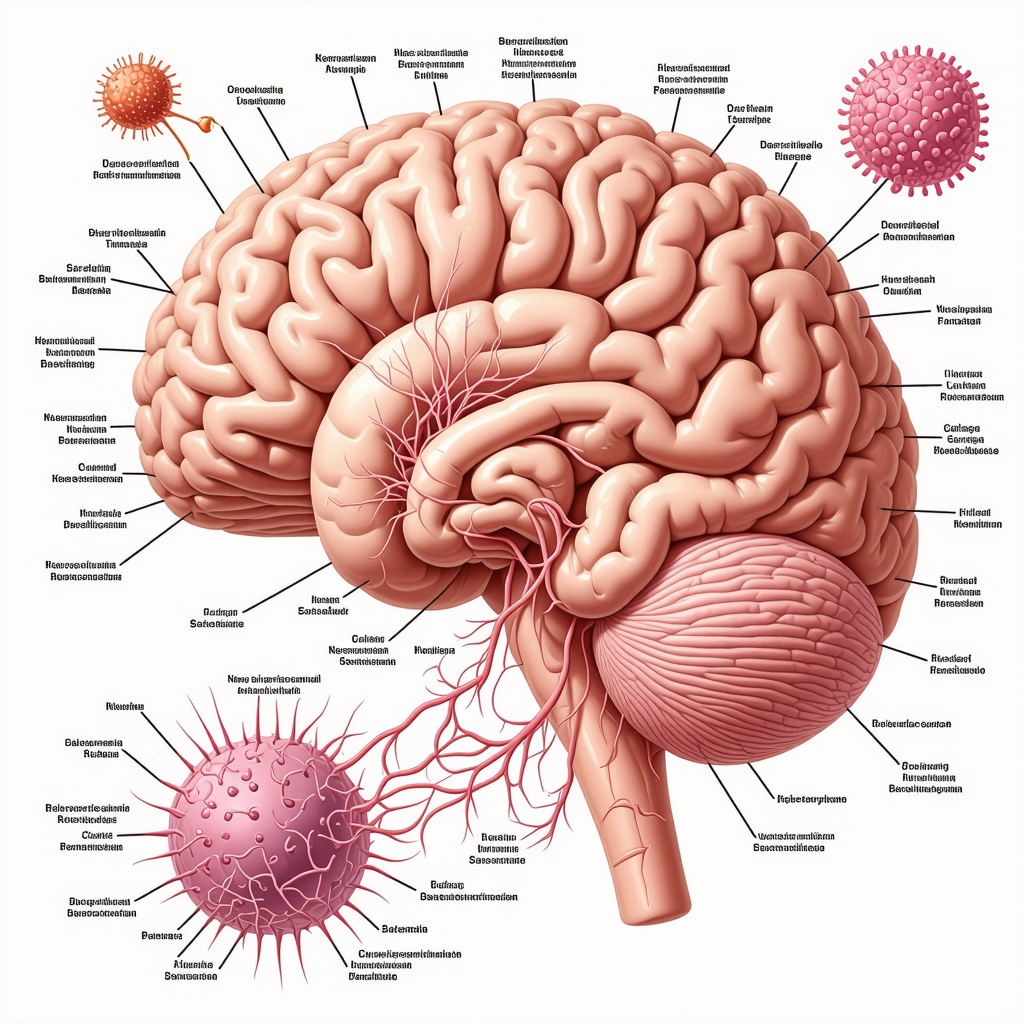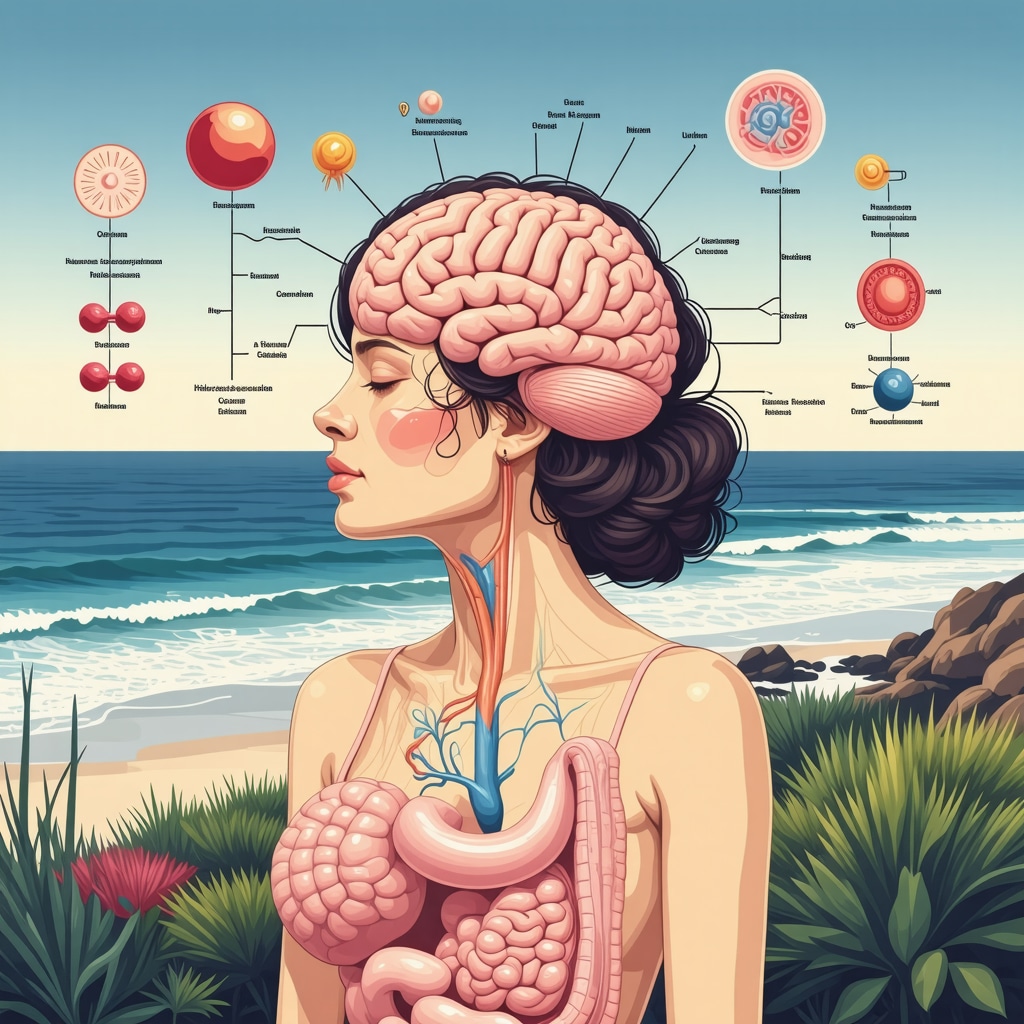Embracing Hormonal Harmony: Navigating Menopause Mood Swings Naturally in San Diego
Menopause is a transformative chapter in a woman’s life, often accompanied by mood swings that can feel overwhelming. For many in San Diego, the quest for natural treatments offers a beacon of hope—balancing emotions without the reliance on synthetic hormones. This article dives into expert-backed strategies and local insights, exploring holistic options that empower women to reclaim emotional equilibrium during menopause.
The Science Behind Mood Swings: Why Do They Occur During Menopause?
Fluctuations in estrogen and progesterone disrupt the delicate neurochemical balance affecting neurotransmitters like serotonin and dopamine, which regulate mood. These hormonal shifts can lead to irritability, anxiety, and depressive episodes. Understanding this biological interplay is crucial for tailoring effective natural treatments that address root causes rather than just symptoms.
Integrative Nutritional Therapies: Feeding Your Brain and Body for Stability
In San Diego, nutritionists emphasize diets rich in omega-3 fatty acids, phytoestrogens, and antioxidants to support hormone regulation and brain health. Incorporating foods such as flaxseeds, walnuts, leafy greens, and fatty fish can mitigate mood volatility by enhancing neurotransmitter synthesis. Additionally, vitamin D and B-complex vitamins play pivotal roles in mood stabilization, especially given San Diego’s abundant sunshine and lifestyle.
Harnessing Herbal Allies: Local Favorites for Menopause Mood Relief
Herbal remedies like black cohosh, St. John’s Wort, and chasteberry have gained popularity for their efficacy in calming mood swings. San Diego’s natural health community often integrates these botanicals, supported by clinical studies indicating their potential to modulate estrogen receptors and neurotransmitter activity. However, consultation with healthcare professionals is essential to avoid interactions and ensure personalized dosing.
How Can Mind-Body Practices in San Diego Enhance Emotional Resilience During Menopause?
Mindfulness meditation, yoga, and acupuncture are cornerstones of San Diego’s holistic health scene. These modalities reduce stress hormones such as cortisol and foster parasympathetic nervous system activation, which promotes relaxation and mood balance. Regular practice not only alleviates mood swings but also improves sleep quality and overall mental well-being, integral components for menopausal women.
Expert Hormonal Optimization: Bioidentical Hormone Therapy as a Complementary Strategy
While natural treatments are foundational, some women in San Diego benefit from bioidentical hormone replacement therapy (BHRT) tailored to their unique hormonal profiles. This approach, detailed in local expert resources, offers symptom relief with hormones chemically identical to those the body produces, minimizing side effects.
Integrating lifestyle modifications with BHRT under expert supervision creates a comprehensive plan for managing menopause mood swings effectively.
For those seeking personalized guidance, exploring San Diego’s top natural menopause mood swing remedies provides a valuable starting point.
Ready to find your balance? Share your experiences or questions about natural menopause treatments in the comments below and join the supportive San Diego community.
Authoritative source: The North American Menopause Society offers extensive research on natural and medical management of menopause symptoms, including mood disturbances (menopause.org).
Discovering the Power of Routine: Small Daily Habits That Made a Difference
When I first started experiencing the unpredictable mood swings that menopause brings, I felt like I was on an emotional rollercoaster with no brakes. What truly helped me was establishing a consistent daily routine that included gentle movement, balanced meals, and mindful pauses. San Diego’s sunny climate made morning walks along the coast not only possible but incredibly refreshing. This simple habit elevated my mood and stabilized my emotions more than I initially expected.
Incorporating nutrient-dense foods rich in omega-3s and antioxidants became part of my everyday practice, inspired by local nutrition experts who emphasize the importance of diet in hormonal health. I found that combining these foods with herbal teas such as chamomile or lemon balm provided soothing moments that helped counteract irritability and anxiety.
Exploring the Role of Sleep: The Often Overlooked Hormone Helper
Sleep disruption was one of the most challenging symptoms for me. I realized that poor sleep exacerbated mood swings, creating a vicious cycle. By prioritizing sleep hygiene—like reducing evening screen time, maintaining a cool bedroom, and practicing relaxation techniques—I noticed a significant improvement in my emotional resilience.
San Diego’s tranquil environment supports outdoor activities that tire the body naturally, promoting deeper sleep. I also explored acupuncture sessions, which local practitioners recommend for balancing hormones and improving sleep quality. These interventions collectively helped me reclaim restful nights and more stable moods.
What Are the Most Effective Lifestyle Changes for Managing Menopause Mood Swings in Your Experience?
I’d love to hear from you—have you found certain lifestyle tweaks that made a difference in managing your menopause mood swings? Sharing our journeys helps create a supportive community where we learn and grow together.
For those interested in diving deeper into the science and personalized approaches, the importance of hormone testing in San Diego cannot be overstated. Understanding your unique hormonal landscape is a game-changer and can guide tailored therapies like BHRT more effectively.
Precision Hormone Testing: Unlocking Personalized Menopause Mood Solutions
One of the most transformative advances in managing menopause mood swings lies in precision hormone testing. Unlike generic treatment approaches, comprehensive hormonal profiling allows clinicians in San Diego to decipher the nuanced hormonal fluctuations unique to each woman. By measuring levels of estradiol, progesterone, testosterone, cortisol, and thyroid hormones, practitioners can tailor interventions that specifically target imbalances contributing to mood instability.
This individualized data supports more accurate dosing for bioidentical hormone therapy and informs complementary lifestyle modifications. Furthermore, emerging salivary and dried blood spot testing methods offer less invasive and more frequent monitoring, fostering dynamic treatment plans that evolve with the patient’s hormonal milieu.
How Does Advanced Hormonal Profiling Influence the Efficacy of Natural Menopause Mood Treatments?
Advanced hormonal profiling enhances the precision of natural treatment modalities by identifying specific deficiencies or excesses that may underlie mood symptoms. For instance, a detected cortisol imbalance might direct the clinician to emphasize adrenal support through adaptogenic herbs like Rhodiola or stress management techniques such as mindfulness-based cognitive therapy.
Additionally, pinpointing low progesterone levels could justify targeted supplementation or dietary adjustments to support endogenous production, optimizing neurotransmitter balance and emotional stability.
According to a comprehensive review published in the Journal of Women’s Health, individualized hormonal assessment significantly improves treatment outcomes by aligning therapy with the patient’s specific biochemical context.
Integrative Neuroendocrine Approaches: Bridging Brain and Hormones for Emotional Stability
Emerging research highlights the critical interplay between neuroendocrine function and menopause mood swings, suggesting that restoring harmony between brain and hormones can yield profound emotional benefits. Techniques such as neurofeedback and transcranial magnetic stimulation (TMS), available in select San Diego clinics, offer promising adjunctive therapies by modulating neural circuits involved in mood regulation.
Coupled with traditional natural treatments, these modalities can recalibrate the hypothalamic-pituitary-adrenal (HPA) axis, reducing stress reactivity and enhancing resilience. The integration of such advanced interventions represents a frontier in comprehensive menopause care, moving beyond symptom suppression toward true neurohormonal balance.
Optimizing Gut-Brain Axis Health: A Novel Frontier in Menopause Mood Management
The gut microbiome’s influence on mood and hormonal metabolism is an exciting and rapidly evolving field. Dysbiosis during menopause can exacerbate mood swings by altering estrogen metabolism and neurotransmitter synthesis. San Diego-based integrative practitioners are increasingly incorporating targeted probiotic therapies, prebiotic-rich diets, and fermented foods to restore microbial balance.
Research demonstrates that specific strains, such as Lactobacillus rhamnosus, can modulate GABA receptor expression in the brain, directly impacting anxiety and depression symptoms. Moreover, optimizing gut health enhances systemic inflammation control, further stabilizing mood fluctuations.

Can Tailored Microbiome Interventions Reduce Menopause-Related Mood Disturbances?
Personalized microbiome modulation holds significant promise. By sequencing individual gut flora, clinicians can recommend precise probiotic strains and dietary adjustments to support estrogen recycling and neurotransmitter production. Early clinical trials indicate improved mood scores with such interventions, suggesting a paradigm shift in managing menopausal emotional symptoms.
For a deeper dive into this innovative approach, explore the latest guidelines from the American Journal of Physiology – Endocrinology and Metabolism.
Engage with our expert community by sharing your experiences or questions about integrating advanced hormonal and microbiome strategies for menopause mood swings in San Diego. Your journey helps shape next-generation care.
Precision Hormonal Insights: Tailoring Menopause Mood Management Through Cutting-Edge Testing
Moving beyond conventional approaches, precision hormonal profiling in San Diego enables clinicians to decode the intricate fluctuations of estradiol, progesterone, testosterone, cortisol, and thyroid hormones unique to each woman. This granular understanding facilitates bespoke interventions that directly address the biochemical substrates of mood instability. Innovations such as salivary and dried blood spot assays provide minimally invasive, dynamic monitoring, empowering practitioners to fine-tune bioidentical hormone therapy (BHRT) and adjunctive natural treatments in real time.
How Does Advanced Hormonal Profiling Influence the Efficacy of Natural Menopause Mood Treatments?
By revealing specific hormonal imbalances, advanced profiling enhances the precision of natural therapies. For example, identifying elevated cortisol levels may prompt targeted adrenal support through adaptogens like Rhodiola and incorporate mindfulness-based cognitive therapy to mitigate stress. Similarly, detecting progesterone deficiencies can guide supplementation strategies and dietary adjustments that optimize neurotransmitter synthesis and emotional regulation. A comprehensive review in the Journal of Women’s Health underscores that individualized hormonal assessment markedly improves treatment outcomes by aligning interventions with each woman’s unique biochemical milieu.
Neuroendocrine Synergy: Integrative Modalities Bridging Brain and Hormonal Health
Emerging neuroendocrine therapies available in select San Diego clinics—such as neurofeedback and transcranial magnetic stimulation (TMS)—offer novel pathways to recalibrate neural circuits integral to mood regulation. These modalities synergistically modulate the hypothalamic-pituitary-adrenal (HPA) axis, attenuating chronic stress responses and enhancing emotional resilience. When combined with traditional natural strategies, this integrative framework transcends symptom management to foster sustainable neurohormonal homeostasis, representing a pioneering frontier in menopause care.
Gut-Brain Axis Optimization: Harnessing Microbiome Science to Stabilize Menopause Mood Fluctuations
The bidirectional communication between gut microbiota and brain function is increasingly recognized as a pivotal factor in menopause mood dynamics. Dysbiosis can disrupt estrogen metabolism and neurotransmitter biosynthesis, exacerbating emotional volatility. San Diego’s integrative health experts incorporate personalized probiotic regimens, prebiotic-rich nutrition, and fermented foods to restore microbial equilibrium. Specific strains such as Lactobacillus rhamnosus have demonstrated efficacy in modulating GABA receptor expression, thereby alleviating anxiety and depressive symptoms. Furthermore, addressing systemic inflammation through gut health optimization contributes to mood stabilization.

Can Tailored Microbiome Interventions Reduce Menopause-Related Mood Disturbances?
Personalized microbiome modulation holds transformative potential. By sequencing individual gut flora, clinicians can prescribe targeted probiotics and dietary protocols that promote estrogen recycling and neurotransmitter balance. Preliminary clinical trials reveal significant improvements in mood metrics, heralding a paradigm shift in menopause emotional symptom management. The American Journal of Physiology – Endocrinology and Metabolism provides authoritative guidance on harnessing microbiome interventions to optimize neuroendocrine health.
Engage with our expert community by sharing your experiences or inquiries about integrating advanced hormonal profiling, neuroendocrine therapies, and microbiome strategies for menopause mood swings in San Diego. Together, we can pioneer next-generation personalized care.
Frequently Asked Questions (FAQ)
What causes mood swings during menopause and how do hormonal changes affect the brain?
Menopause-related mood swings primarily result from fluctuating levels of estrogen and progesterone, which influence neurotransmitters like serotonin and dopamine. These shifts disrupt neurochemical balance, leading to irritability, anxiety, and depression. Understanding this helps tailor treatments that address underlying hormonal and neuroendocrine mechanisms rather than only symptoms.
How can nutrition support emotional stability during menopause?
A diet rich in omega-3 fatty acids, phytoestrogens, antioxidants, vitamin D, and B-complex vitamins supports hormone regulation and neurotransmitter synthesis. Incorporating foods like flaxseeds, walnuts, leafy greens, and fatty fish can reduce mood volatility by nourishing brain health and hormonal balance.
Are herbal supplements safe and effective for managing menopause mood swings?
Herbal remedies such as black cohosh, St. John’s Wort, and chasteberry have demonstrated potential to modulate estrogen receptors and neurotransmitter activity, easing mood symptoms. However, safety depends on individual health profiles and possible interactions, so consultation with healthcare professionals is essential for personalized dosing and monitoring.
What role do mind-body practices play in menopause mood management?
Mindfulness meditation, yoga, and acupuncture help reduce stress hormones like cortisol and activate the parasympathetic nervous system, promoting relaxation and emotional resilience. These practices improve sleep quality and overall mental well-being, crucial for managing menopausal mood swings naturally.
How does bioidentical hormone replacement therapy (BHRT) complement natural treatments?
BHRT uses hormones chemically identical to those produced by the body, allowing tailored dosing based on precision hormone testing. When combined with lifestyle modifications and natural therapies, BHRT can effectively alleviate mood swings with minimized side effects under expert supervision.
Why is precision hormone testing important for menopause mood swing treatment?
Precision hormone profiling identifies specific hormonal imbalances unique to each woman, enabling clinicians to customize interventions. This enhances treatment efficacy by targeting biochemical substrates of mood instability, optimizing both natural therapies and BHRT strategies.
What are neuroendocrine approaches and how do they help stabilize mood?
Neuroendocrine therapies like neurofeedback and transcranial magnetic stimulation (TMS) modulate neural circuits involved in mood regulation and recalibrate the hypothalamic-pituitary-adrenal axis. These integrative modalities reduce stress reactivity and promote sustainable emotional balance when combined with traditional natural treatments.
How does the gut-brain axis influence menopause mood swings?
The gut microbiome affects estrogen metabolism and neurotransmitter production, both critical for mood regulation. Dysbiosis can worsen mood symptoms. Targeted probiotic therapies, prebiotic-rich diets, and fermented foods restore microbial balance, reduce inflammation, and improve emotional stability.
Can personalized microbiome interventions improve menopause-related mood disturbances?
Yes, by sequencing individual gut flora, clinicians can recommend precise probiotic strains and dietary adjustments that promote estrogen recycling and neurotransmitter synthesis. Early clinical evidence suggests significant mood improvements with such tailored microbiome modulation.
What lifestyle changes are most effective for managing menopause mood swings?
Consistent daily routines incorporating gentle exercise, balanced nutrition, stress reduction techniques, and optimized sleep hygiene are foundational. San Diego’s environment facilitates outdoor activities and relaxation practices that collectively enhance emotional resilience during menopause.
Trusted External Sources
- The North American Menopause Society (NAMS): Provides comprehensive, evidence-based guidelines and research on natural and medical management of menopause symptoms including mood changes (menopause.org).
- Journal of Women’s Health: Publishes peer-reviewed clinical studies on individualized hormonal assessment and therapies improving menopause mood outcomes (PMC7139169).
- American Journal of Physiology – Endocrinology and Metabolism: Offers authoritative research on gut microbiome’s role in neuroendocrine health and mood regulation (PMC6683076).
- Hormone Therapy San Diego: Local expert platform providing in-depth insights on BHRT, hormone testing, and natural menopause treatments specific to San Diego’s population (hormonetherapysandiego.com).
Conclusion
Menopause mood swings arise from complex hormonal and neuroendocrine shifts that challenge emotional stability. Embracing natural treatments—ranging from integrative nutrition and herbal remedies to mind-body practices—provides foundational support. Cutting-edge advances like precision hormone testing, bioidentical hormone therapy, neuroendocrine modalities, and gut-brain axis optimization enable highly personalized, effective management strategies tailored to each woman’s unique biochemical and microbial profile. In San Diego’s vibrant health ecosystem, these expert-informed approaches empower women to navigate menopause mood fluctuations with renewed balance and resilience. To deepen your understanding and connect with a supportive community, share your experiences and explore related expert content on natural menopause care. Your journey matters—take the next step toward hormonal harmony today.

